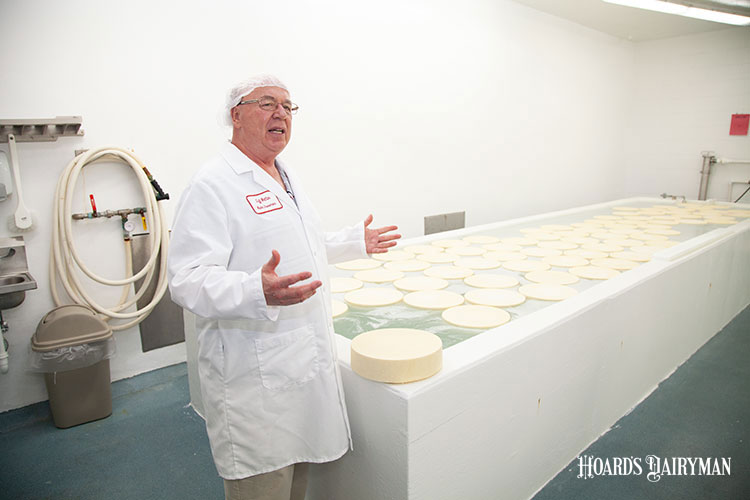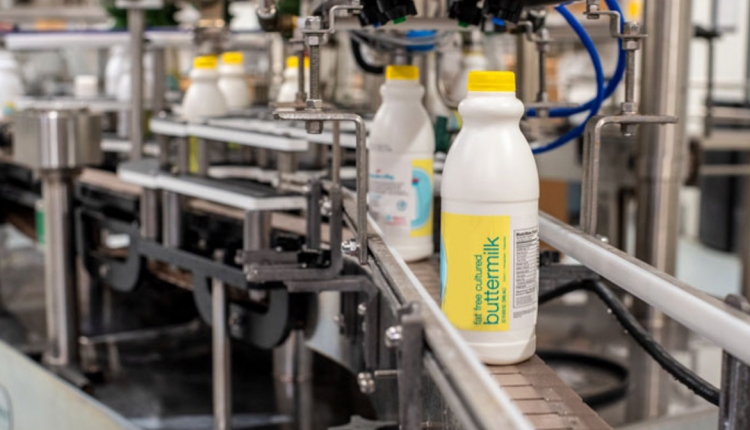
U.S. cheesemakers of all sizes are united around food safety. It is seen as a shared responsibility deeply embedded in members of the checkoff-founded Innovation Center for U.S. Dairy. It is not viewed as a competitive advantage for any one company.
This is why some of the country’s largest cheesemakers, such as Dairy Farmers of America, Hilmar, Leprino, Saputo, Schreiber, Tillamook, and others share their expertise and resources with companies that produce only a fraction of what they do. The prevailing attitude of Innovation Center members is that protecting consumers comes first and a black eye for one cheesemaker is a black eye for the entire dairy industry.
While artisanal and farmstead cheesemakers account for a small percentage of U.S. production volume, sales are growing and there is a surge of companies entering the industry. We’re all seeing more offerings in the mainstream retail case. Our longtime partners at the American Cheese Society (ACS) report there are more than 1,000 small U.S. cheesemakers, and the number will only grow.
Knowing many of them don’t have the same resources and expertise of the industry’s bigger players, the Innovation Center formed the Artisan Food Safety Advisory Team, which extends science-based support to help these companies with practices to maintain their commitment to safety and protect U.S. dairy’s reputation while growing sales.
The Innovation Center’s Listeria Research Consortium has primarily focused its funding on finding new tools for high-moisture/Hispanic style and surface-ripened cheeses, varieties normally produced by smaller companies, and historically, the cause of many food safety outbreaks.
Our outreach to cheesemakers of all sizes was on full display at last week’s ACS annual conference in Portland, Ore., where Innovation Center staff and volunteers conducted workshops and offered resources to attendees. Innovation Center sessions included a food safety training day – marking our 100th workshop – plus the roll-out of supplier management guidance and templates and a review of recent research findings on Listeria controls.
Our work with small processors has been continuous since 2012, with the Innovation Center convening an Artisan Food Safety Advisory Team four to six times a year to develop targeted tools, training, and programs. The Innovation Center has conducted 37 in-person artisan training sessions with more than 1,000 attending and offers Food Safety for Artisan/Farmstead Cheesemakers online. This course includes five science-based interactive segments focused on the importance of food safety, hazards, preventive controls, regulatory considerations, and environmental monitoring.
Over the years, we have developed a number of training guides and resources, which are available at usdairy.com/artisan and on the ACS-hosted site, www.safecheesemaking.org. Many materials are available in Spanish and more will be launched this fall.
Our latest resources include a 50-state tool to help companies find local support, and a supplier controls guide to further assist with their food safety protocols. I’ll also note there is similar growth of small ice cream companies in the U.S., and we have resources for them at www.safeicecream.org.
It’s gratifying to see how strongly the U.S. dairy industry shares a common belief that food safety is something we all must rally around regardless of production figures. In the case of U.S. cheesemakers, big and small are united for the greater good.
To learn more about your national dairy checkoff, visit www.USDairy.com or send a request to join our Facebook group. To reach us directly, send an email to TalkToTheCheckoff@dairy.org.




